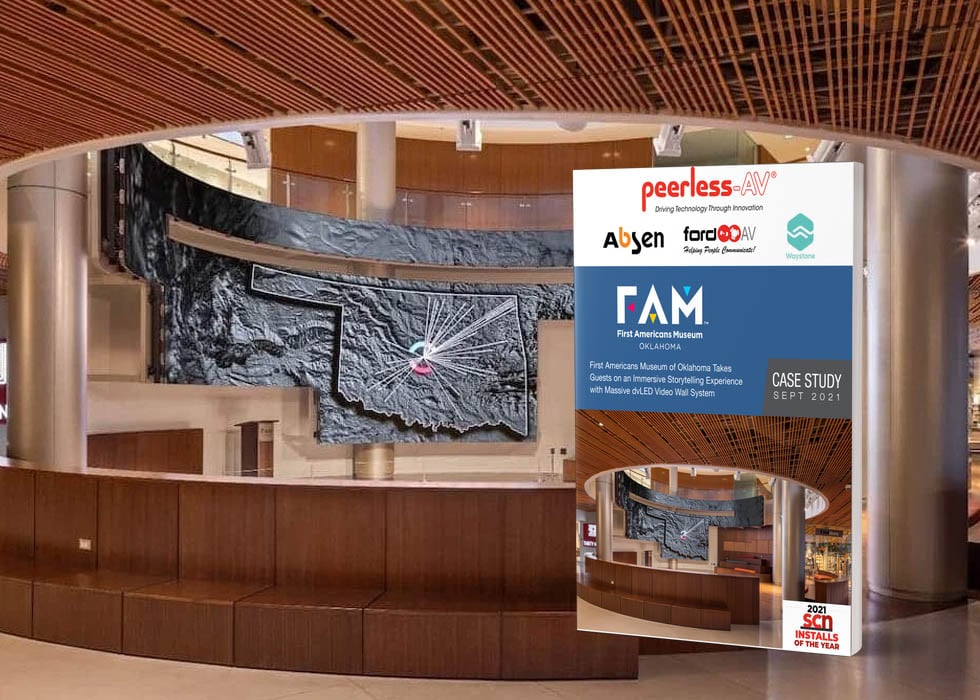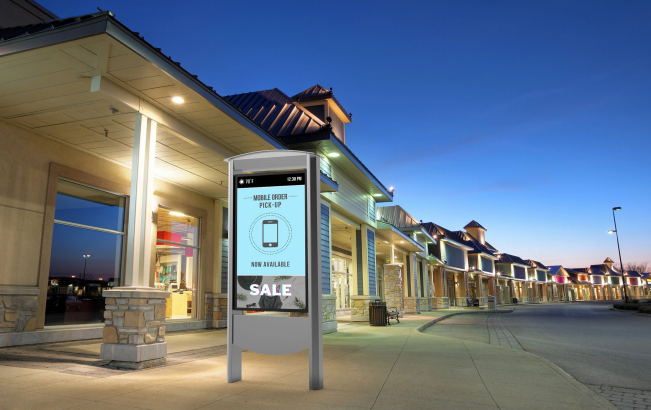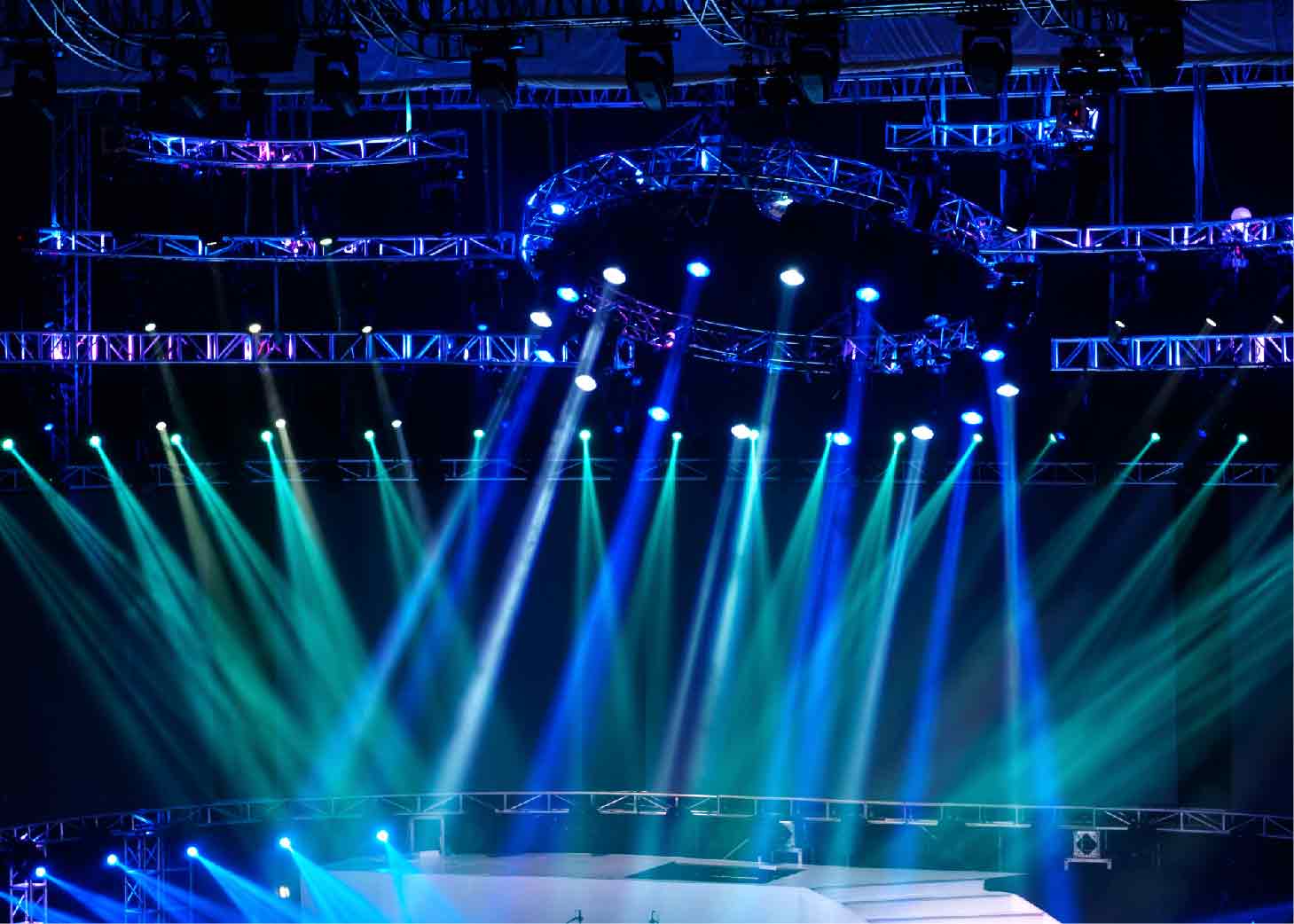.png?sfvrsn=43e47a15_1)
What Is AV Equipment? A Guide For All Your AV Needs
Flawlessly integrating audio, video, and lighting is the key to wowing audiences at events. These AV solutions work together to aid communication, deliver impactful multimedia presentations, and create an immersive environment. Whether you’re planning to throw an event or want to deck out your home theaters, AV equipment will aid you in creating an engaging space. But what exactly are these technologies?
Let’s define what the term “AV equipment” entails, get into the various types of AV equipment, and discover what equipment is best utilized in each of these four sectors—business, education, events, and home. By the end of the article, you’ll have more of an understanding of how to pick out the right AV tech for your needs.
So, what exactly is AV equipment? Audiovisual or AV equipment is all the integral gear that enhances both sound and visuals. The term encompasses various devices which are designed to integrate and deliver high-quality audio and visual content seamlessly.
Types of AV Equipment
AV includes audio equipment like microphones, speakers, and amplifiers, as well as video equipment like cameras, projectors, and monitors. To come to better terms with “AV equipment,” let’s learn more about some of the most common types of audio and visual equipment.
Audio Equipment:
- Microphones - Microphones are essential audio equipment for events and presentations. Multiple factors should be considered when deciding on the number of microphones needed for an event, including the size of the venue, the number of speakers or performers, and the desired audio coverage. Each microphone type is suited for a specific situation, so be sure to do your research on choosing the right mic for each use.
- Speakers - Speakers are responsible for producing sound, typically consisting of two main parts—a speaker cone and a voice coil. Options include PA systems, monitor speakers, subwoofers, and more. The type of speakers needed varies depending on the venue size, the event’s nature, and the desired sound quality. A live concert demands powerful speakers with high fidelity, while a conference needs clear and intelligible speech reinforcement. The choice between powered and unpowered speakers is significant as powered speakers come with built-in amplifiers (offering convenience and self-containment), while unpowered speakers require external amplifiers (providing greater flexibility for customization and scalability).
- Amplifiers - Amplifiers power microphones and speakers to ensure sound is heard clearly. Deciding whether amplifiers are needed for an event involves several considerations related to the event's specific audio requirements, venue characteristics, and equipment capabilities. Any large or outdoor events typically require amplifiers.
Video Equipment:
- Cameras - Cameras capture high-quality video and images, enabling live streaming, recording, and more. Options range from simple PTZ cameras to advanced robotic cameras. When specifying cameras, consider the event’s objectives, the desired level of image quality, and the available lighting conditions.
- Projectors - Projectors display visual content on a large surface and can receive signals from various sources, such as HDMI. When selecting a projector, several factors must be considered to ensure optimal performance, like brightness, resolution, and connectivity. Brightness, measured in lumens, should match the room size and ambient light conditions. Understanding the specific use case will help determine the appropriate specifications needed in a projector, as projectors can serve many purposes, such as home theater, business presentations, or outdoor events.
- Monitors - Quality monitors are display devices designed for professional audio and video applications. They serve various purposes depending on the context in which they're used, from video production to broadcasting, live events, and more. They differ from consumer-grade monitors in their design, features, and capabilities, catering to more specialized needs.
Control Systems:
Taking it a step further, you may want multiple audiovisual components to be managed in one integrated and efficient manner. That’s where AV control systems come in. Control systems are integral components that manage and unify the operation of various AV devices and systems. They provide users with a streamlined interface to control multiple functions and devices, often from a single point or device, such as a remote control. Popular AV control system brands include Crestron and AMX by Harman.
Common Uses of AV Equipment
AV equipment is used in conference rooms, lecture halls, and many other spaces. The setting typically dictates the type of equipment needed to get the job done. So, to understand what tech is optimal for your space, let’s now break down the most common equipment used in each of these various sectors—business, education, events, and home.
Business
It’s not unusual to see AV equipment in the office, usually in conference rooms. Equipment like microphones, PA systems, speakers, and webcams are common workplace tools.
For small meetings and panels, a microphone like the Shure MX418D/C provides clear voice pickup at an affordable price. For large meetings or conferences, the Sennheiser EW 100 G4 wireless microphone system is recommended for reliable performance and mobility, or Shure's Microflex Complete Wired Microphone System for superior clarity. The JBL EON612 portable PA system works wonders for small audiences. For larger audiences, the TOA F-2352C speakers paired with a TOA 900 series amplifier provide widespread coverage across ballrooms and auditoriums. High-end options like the Bose L1 Model II system offer pristine audio reproduction for keynote addresses. The Logitech C930e webcam captures sharp 1080p video for live streams and video conferencing. Larger gatherings requiring more professional video should use PTZ cameras like the Panasonic AW-HE40 or the Sony FDR-AX53 Handycam.
Education
When it comes to educational AV equipment, PA systems, and projectors are commonly used in classrooms. Universities may even offer hands-on studios where students can utilize tech like microphones, cameras, and more.
Some projectors for the classroom include models like the BenQ LS550 and the ViewSonic PX701HD. Samsung, LG, and Promethean offer great choices for monitors that are ideal for presentations or collaborative learning. For speakers, the JBL Professional line, the Bose FreeSpace series, and the Anchor Mini offer popular choices. For microphones, the Shure BLX series and the Sennheiser XSW series are great selections.
Events
During event planning, AV equipment can easily become an afterthought. But it shouldn’t be. AV equipment plays a pivotal role in determining the success of any event, creating an engaging and memorable experience for attendees. Common events that AV equipment often helps support include concerts and weddings. Theaters tend to utilize AV equipment too.
When it comes to event AV equipment, some common equipment includes speakers, monitors, and projectors. Many concerts and music festivals utilize projection mapping and speaker arrays. Additionally, some weddings have gotten creative with AV tech by projection mapping on cakes. Conferencing technology has also opened the doorway for far-away guests to attend semi- or fully- virtual weddings.
For concert audio systems, the JBL VTX Series, Meyer Sound LEO Family, and QSC K.2 Series offer quality speakers. For microphones, the Shure SM58 model is great for vocals. Weddings may benefit from PA systems, like Bose L1 Pro32 or Electro-Voice Evolve 50. Wireless mics like the Audio-Technica System 10 offer excellent reliability. Theaters may benefit from audio systems like the d&b audiotechnik V-Series or the L-Acoustics ARCS Series.
Home
When it comes to home AV equipment, some of the most common pieces of AV tech you’ll see are for gaming setups and home theaters. They include monitors, projectors, and speakers.
For home theaters, Sony and LG are common models, known for excellent TV picture quality. Epson is known for its vivid projectors, such as the Epson Home Cinema 5050UB. And companies like Yamaha, Klipsch, and Sonos offer premium home audio solutions.
For gaming monitors, models like the ASUS ROG Swift PG35VQ, Acer Predator X27, and Dell Alienware AW3418DW are commonplace. For audio, headsets like the Logitech G Pro X Gaming Headset offer premium support. Bose is also known for its high-quality audio and is a common choice.
How to Choose the Right AV Equipment
Finally, when it comes to choosing the right AV equipment for you and your space, there are a few key aspects to keep in mind. Your location, venue size, and room acoustics will be major factors. You’ll also want to define the objectives of your event early on. Establishing a budget to prioritize and make decisions about what equipment you will purchase is also essential.
If you want to avoid renting, setting up equipment, or troubleshooting technical issues all on your own, you can turn to AV professionals for guidance! The importance of quality and professional advice cannot be understated. AV Technicians play a crucial role in proper audiovisual setup and operation. Look for specialists with extensive expertise in your specific event type. Request examples and read testimonials to make a calculated decision.
In Closing
To summarize, AV equipment is the gear that enhances sound and visuals at an event. AV includes audio equipment such as microphones, speakers, and amplifiers alongside video equipment like cameras, projectors, and monitors. This equipment is used to amplify the experience of festivals, weddings, and more. AV equipment plays a vital role in determining the success of any event, so it’s important to keep it at the top of your mind and not leave it as an afterthought. Well-executed AV equipment elevates presentations, captivates audiences, and delivers messages effectively.
When it comes to choosing the right AV equipment for you and your project, the size of your venue and the acoustics of your space will be major determining factors. Consider defining clear event objectives early on and establishing a budget to help in your decision-making. Luckily, if you want to avoid any of the hassles that may come with renting equipment, setting up equipment, or troubleshooting technical issues on your own, you can turn to AV professionals for assistance!
To learn more about AV equipment, check out our CTS program and other resources! Plus, watch our video on how to manage used AV equipment below.








